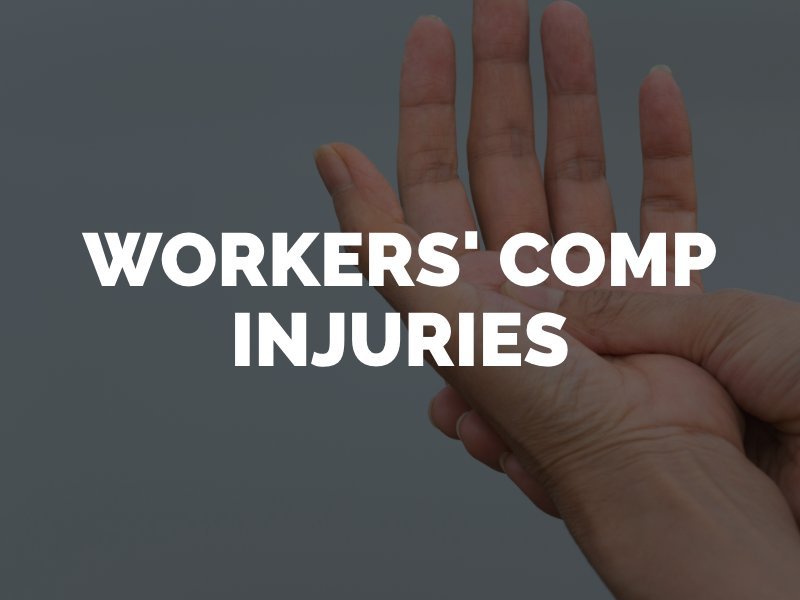What Injuries Are Covered by Workers’ Compensation?
If you get injured on the job in California, you may be able to receive workers’ compensation benefits for your related medical expenses, treatments, lost wages and more. The California workers’ compensation system provides no-fault benefits to employees who sustain occupational injuries and illnesses. Find out which conditions are covered by workers’ comp and which are not to determine your eligibility.

Occupational Injuries and Illnesses
An occupational injury or illness can describe almost any health condition that results from on-the-job activities. These can include bone fractures, muscle tears, soft-tissue injuries, burns, back injuries and joint injuries, as well as illnesses from exposure to hazardous substances, such as asbestos. They can also include severe or fatal injuries, including spinal cord injuries and traumatic brain injuries.
To receive workers’ compensation benefits for an injury or illness, you must prove that a work-related task or circumstance caused your condition. This may require photographs or surveillance video footage, eyewitness testimony, opinions from experts, medical records, accident reports, and other types of evidence.
You do not, however, have the legal burden to prove that your employer, a coworker or another party caused your injury or illness. The cause of your condition is not relevant to a workers’ comp claim unless you were reckless, under the influence of drugs or alcohol, or guilty of horseplay. In these scenarios, you may be ineligible for benefits.
Stress and Repetitive Motion Injuries
Injuries from traumatic accidents are not the only injuries that are covered by workers’ compensation in California. You may also be eligible for financial benefits for an injury caused by stress, heat, overexertion or repetitive motion. If you work on an assembly line, for example, and use the same back and arm movements over and over each day, you may qualify for workers’ compensation for a repetitive motion injury, such as a pulled muscle or carpal tunnel syndrome.
The Severity of the Injury Matters
In general, you will only have grounds to file a workers’ compensation claim if you suffered compensable losses because of your occupational injury or illness. These include medical treatments and time taken off of work. If you only suffered a minor injury or illness, therefore, and do not have any related compensable losses, you may not have a reason to file an insurance claim.
The severity of the injury also matters in terms of the benefits that are available. You will only qualify for disability and occupational retraining benefits if your occupational injury or illness temporarily or permanently takes you out of work. For example, if you suffered an eye or ear injury that led to vision or hearing loss. Otherwise, you may only be eligible for medical recovery and lost wage benefits while you recover.
Is There Anything That Workers’ Compensation Does Not Cover?
Although rare, there are certain conditions that workers’ compensation insurance does not cover in California. If you try to seek financial compensation for a pre-existing injury that has nothing to do with your occupation, for example, your claim may be denied. If your occupation exacerbated a pre-existing injury, however, you may still be eligible.
Mental and emotional conditions are covered by workers’ compensation in California, but the worker must prove that the mental condition exists, that it is severe enough to interfere with the worker’s ability to perform his or her job, and that it was a result of the job. Thus, it is often more difficult to receive workers’ comp for nonphysical conditions.
Finally, workers’ compensation may or may not cover COVID-19. Coverage depends on the circumstances of your illness and the laws in your state. Under California law, a worker may be eligible for compensation for COVID-19 if he or she works in a high-risk environment, such as the medical industry, or if the worker contracted the illness due to an outbreak at work.
For more information about the injuries that are covered by workers’ compensation, contact a workers’ compensation lawyer in Glendale.
